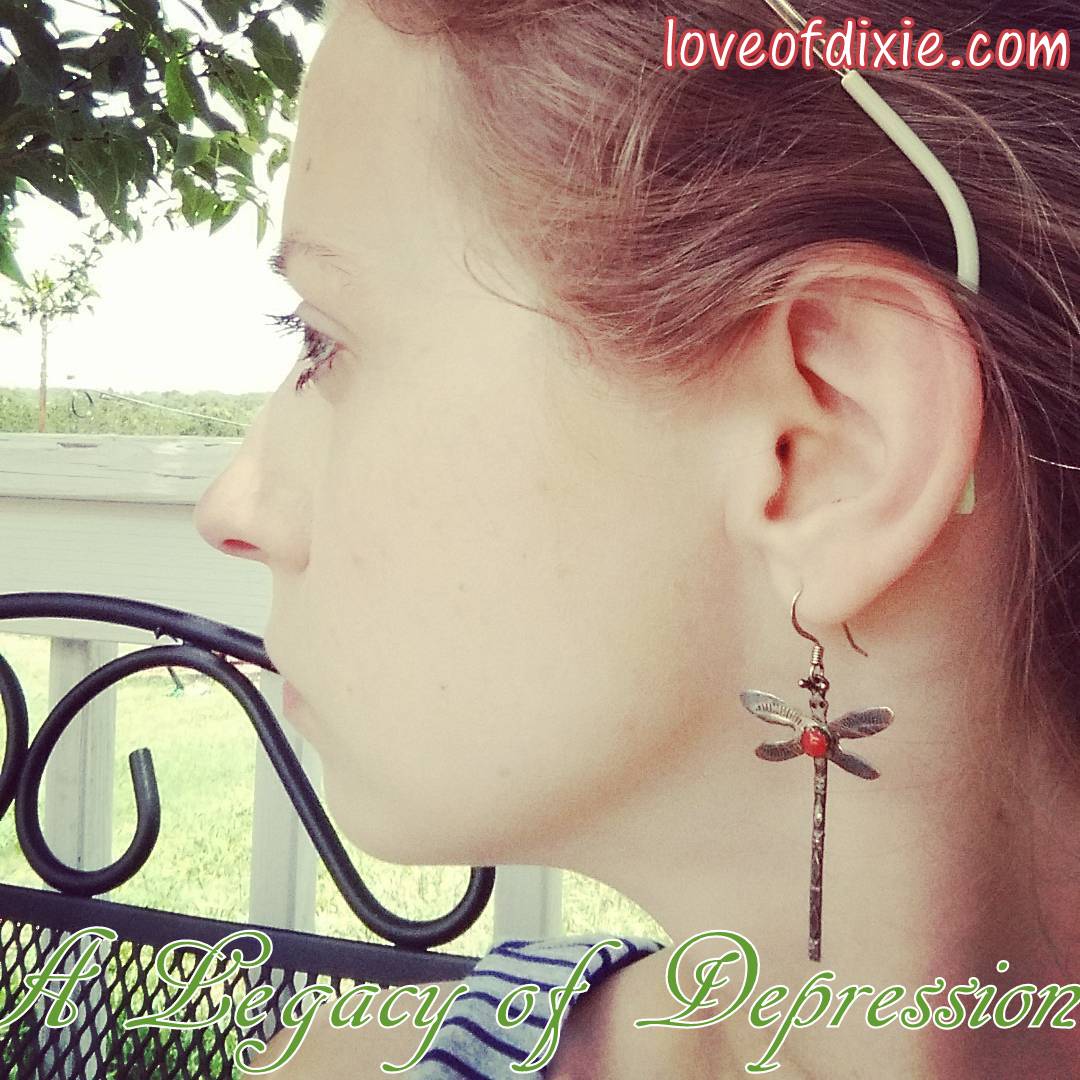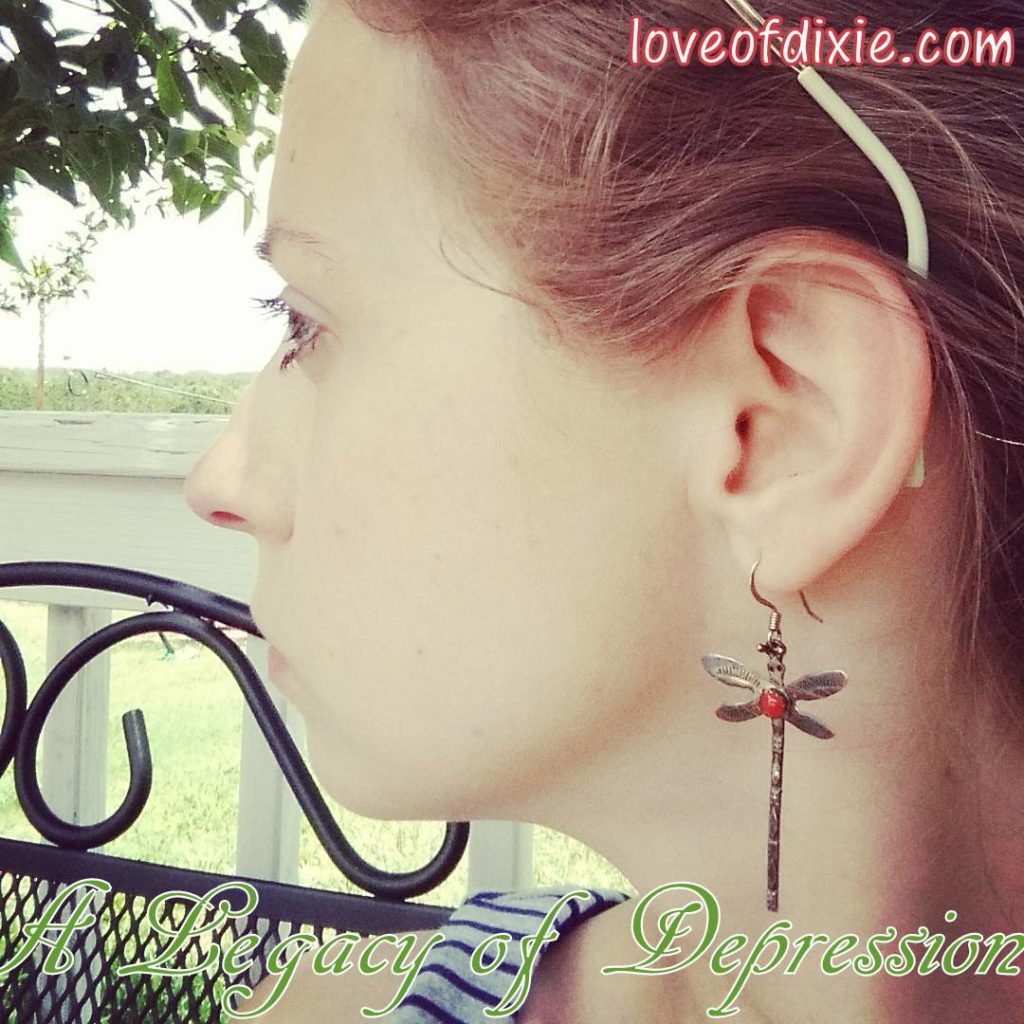My mother left behind a legacy of depression. I inherited her struggles with mental health.
I remember standing outside my mother’s walk-in closet, listening to her sob for what felt like an eternity, on multiple occasions during elementary school.
My mother taught me to hide pain and tears behind closed doors.
How I found my mother in the mirror
Years later, I often found my mother talking to her “best friend,” her own reflection in the mirror, as her early onset Alzheimer’s disease progressed.
Now that she is gone, I often find myself talking to my mother, in my own reflection in the mirror.
Friends and family frequently comment on my uncanny resemblance to my mother. Some have even commented on the striking similarities in our interests and personalities.
But few see our similar struggles with anxiety and depression.
A legacy of depression
When I was struggling to find peace in high school, my mother sat me down on the couch and explained that she believed I had inherited anxiety disorder from herself and my maternal grandfather. Having a name and a reason for the way I felt was my first breakthrough in understanding and coping with my mental health issues.
My mother battled anxiety and depression, no doubt intensified by a turbulent marriage, for much of her life.
And, as far as I know, my mother never sought help for her emotional health. No counseling, no medication, no support.
I imagine the public stigma of depression for a small town church of Christ girl was just too much to bear, much like the stigma of divorce.
Society often sees depression as a sign of weakness, instead of as a legitimate mental and physical condition.
In fact, when I tried to tell my father about my depression as a teenager, he told me I just needed to pray more. This, of course, made me feel like it was my fault that I couldn’t shake my depression and only pushed me further into the abyss.
At the end of my first year of college, my mother feared that I was self medicating with alcohol. She was right.
My mother recognized my suffering because she had faced the same struggles and never reached out for help.
But she wanted better for me.
Treating a legacy of depression and anxiety
Left untreated, depression and anxiety can wreak havoc on the brain. A recent study showed that chronic depression shrinks the hippocampus, but, fortunately, the damage is most likely reversible:
The researchers found 65% of the depressed study participants had recurrent depression and it was these people who had a smaller hippocampus, which is near the centre of the brain and is involved with long-term memory, forming new memories, and connecting emotions to those memories.
It is difficult for me to believe that my mother’s chronic depression and anxiety did not play a role in her development of early onset Alzheimer’s disease.
Of course, there are plenty of situational reasons for depression, like grief and abuse. But there are also physical, and often treatable, reasons for depression. These should not be ignored.
Sources of inflammation, like gluten, dairy and sugar, deficiencies in magnesium and vitamin D3, and hormone imbalance can play a powerful role in mental health.
Deep thoughts
Fortunately, my mother left me with something more important than a legacy of depression. She also left me with a legacy of faith.
It took me a long time to realize that my sensitive nature is not a weakness but a spiritual gift.
A few years ago, my maternal grandmother, concerned over one of my blog posts I’d written about my mother’s illness, remarked that I “sure have some deep thoughts.”
Unfounded worry and anxiety is never helpful.
But is feeling deep emotions a curse? I don’t think so.
Even Daniel, a man of unwavering faith, was deeply disturbed by his prophetic vision from God:
And I, Daniel, was overcome and lay sick for some days.
Daniel 8:27 ESV
Daniel trusted God’s plans but felt deep concern for the Hebrew people. He was overwhelmed with empathy, internalizing the pain and struggles of others. This made him an effective leader and minister to his people.
Guarding my heart
Prayer, meditation, exercise, and aromatherapy are great temporary mood boosters. But I’ve found that the best way to beat depression and anxiety is to guard my heart by staying true to myself:
Keep your heart with all vigilance, for from it flow the springs of life. – Proverbs 4:23 ESV
Writing is how I process these deep, deep feelings. It is my therapy and the truest expression of my heart.
When the Texas Strong fundraiser took on a life of its own, I temporarily lost my truest self to shirt sales and media interviews. I lost my introverted, sensitive self to a fabricated image of trendsetting confidence in the public spotlight.
Transparency in community
But, the truth is, pain and tears aren’t meant to be hidden behind closed doors.
In fact, I believe hiding our struggles is oftentimes dishonest, disobedient to God and detrimental to our health. And it is certainly detrimental to those around us.
I recently came clean and shared my struggles with depression and anxiety on this blog’s Facebook page, terrified of the negative feedback I might receive.
The response was immediate and overwhelming. Countless comments and private messages poured in on Facebook, basically saying, “I struggle with that, too. Thank you for being open about this.”
Yes, we are called to celebrate in community. But we’re also called to struggle in community so that we can build one another up in His name.
We are never truly alone in our pain.




9 replies on “How I Found My Mother in the Mirror: A Legacy of Depression”
It’s not easy being honest about our struggles, but I commend you for doing so. Opening up to others in that way certainly can help me when I’m struggling. Plus, depression often tells me that I’m the only one, etc. etc. and despite me knowing in my brain this isn’t true, depression takes over my heart and lies about it. So, to open up to others, for me at least, is also to open up to myself and the possibility that no, I’m not the only one. That, in itself, is such a relief 🙂
An insightful post. It is a wonderful place to get to when we realise that we have gifts that we previously either diminished or even disliked. there is true strength in being able to utilise all those talents and life experiences within us. Thanks for sharing
Wow. Thank you so much for sharing this. Unfortunately, the church can make it challenging for those who struggle with depression and anxiety. I have huge battles with anxiety on a daily basis and I occasionally fight depression. I’m thankful for the Lord as well because He has put people in my path who can help and encourage me.
Thank you for sharing (and for linking up to the #SHINEbloghop).
Wishing you a lovely weekend.
xoxo
Thank you so much for reading and leaving this sweet comment. I so appreciate you and the encouraging community you’ve created through the #SHINEbloghop.
Highly recommend Sheila Walsh’s book, Loved Back to Life” and
“Breaking Generational Curses and Bringing Down Strongholds” by Marilyn Hickey.
You’ll see the similarities right away.
Blessings.
Thank you, I’ll look for those!
[…] I had totally lost sight of my gift, trying to please people instead of pleasing God. As my grandma says, “You can’t be everything to everyone.” […]
[…] I expected this book to dig up some remaining bitterness about past hurts in my relationship with my dad but, instead, it resulted in digging up some other bitterness I had hidden away, bitterness that […]
[…] always forgave her transgressions. Her love and attention helped me survive numerous bouts of depression and anxiety, a painful miscarriage, a decade of dementia caregiving, and years of grief following the […]